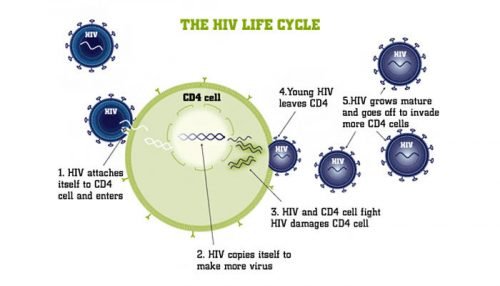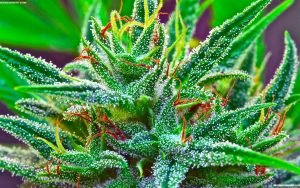
Medical cannabis has long been used as treatment for symptoms associated human immunodeficiency virus (HIV) including chronic pain, nausea, fatigue, etc. Clinical research and trials have provided mounting evidence is that marijuana may stop the progression of HIV. A study published by a group of researchers from Louisiana State University in the journal AIDS Research and Human Retroviruses suggested that marijuana, specifically tetrahydrocannabinol (THC), could help aid in the battle against HIV.
What is THC?

The legal use of marijuana and other cannabis products is growing and its consumers are becoming more curious about their options which includes the two natural compounds found in cannabis plants: cannabidiol (CBD) and tetrahydrocannabinol (THC), two natural compounds found in cannabis plants. CBD on its part can be extracted from hemp or from marijuana plants that contain less than 0.3 percent THC. THC is the main psychoactive compound in cannabis responsible for the high sensation and can be ingested either by smoking marijuana or in oils, edibles, tinctures, capsules, and more. Raw marijuana contains the non-psychoactive cannabinoid THCA which is usually converted into “active” THC only when marijuana is exposed to head, which then makes the user feel high, a process is known as “decarboxylation.
Research Investigation on THC, HIV/AIDS

HIV affects close to 1.1 million people in the US, and it is a slowly replicating retrovirus that attacks immune system of the body which if left untreated can cause acquired immunodeficiency syndrome (AIDS) when left untreated, which according to the Centers for Disease Control and Prevention took 15,529 lives in 2010.
The Louisiana State researchers used monkeys as models to investigate the potential role of marijuana in treating HIV. A group of infected primates with as much as 0.64 mg/kg of tetrahydrocannabinol (THC) were treated per day for 17 months. Stomach tissue was sampled by the research team from the THC-dosed monkeys, as well as a group of infected primates that did not receive treatment. According to the Lead author Dr. Patricia Molina, who published a similar study in 2011 the findings of the research revealed novel mechanisms that may potentially contribute to cannabinoid-mediated disease modulation.
It should be noted that this not the first study to determine that marijuana can fight the progression of HIV. Another research published in 2012 revealed that activation of the CB2 receptors can help fight the virus in late-stage AIDS patients. One of the most effective ways of measuring the biological aspects of fear is measurement of skin conductance which works by testing the amount of electricity that the skin conducts, which is determined by the amount of moisture caused by sweat gland secretion. This method is commonly used to explore patients’ level of emotional arousal since the sweat glands are involuntarily controlled by the nervous system.
The finding of this study suggested that, the virus did significantly less damage in THC group when compared to the control group and that tissue from monkeys treated with tetrahydrocannabinol (THC) expressed fewer signs of HIV.



